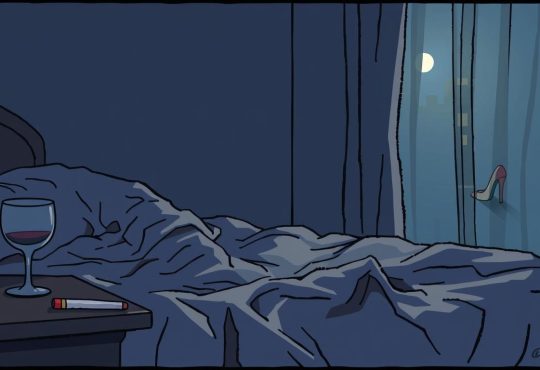
Have you ever wondered if attraction outside a marriage is just a fleeting feeling or something more serious? Crushes can happen, but when does it cross the line into a concern for your relationship?
Many partners face moments of doubt, especially when they notice subtle changes in behavior. While attraction to another person might seem natural, it’s essential to understand when it could signal deeper issues in a marriage.
We’re here to help you navigate these feelings with clarity. This article breaks down the behaviors that might indicate a shift in emotional focus. From late-night texts to secret smiles, we’ll explore real-life examples and provide actionable insights.
Our goal is to empower you with knowledge and tools to strengthen communication in your relationship. Let’s dive in and uncover what these signs could mean for you and your partner.
On this Page:
- 1 Understanding the Basics of Attraction in Marriage
- 2 Recognizing Subtle Behavioral Changes at Home
- 3 Observing Communication Cues Within Your Relationship
- 4 Identifying the Signs Your Husband Has a Crush on Another Woman
- 5 The Influence of Social Media and Digital Interactions
- 6 Insights from Relationship Experts and Real-Life Experiences
- 7 Reflecting on Your Emotions and Relationship Needs
- 8 Conclusion
Understanding the Basics of Attraction in Marriage
Attraction is a natural part of human relationships, but how does it impact a marriage? While it’s common to notice others, understanding the difference between a casual crush and infidelity is key to maintaining trust and connection.
Defining a Casual Crush vs. Infidelity
A casual crush often involves fleeting thoughts or admiration for someone else. It’s a natural response to attractive qualities and doesn’t necessarily threaten a marriage. However, infidelity crosses the line into emotional or physical betrayal, which can deeply harm a relationship.
Experts like Eva Taylor Grant emphasize that crushes are common and don’t always indicate a problem. What matters is how these feelings are managed. Open conversation with your partner can help address insecurities and prevent misunderstandings.
The Natural Human Tendency to Notice Others
It’s human nature to notice attractive qualities in others, even when in a committed marriage. According to David Bennett, this doesn’t mean a lack of love or loyalty. Instead, it’s a reflection of our innate tendency to appreciate beauty and connection.
Dr. Jameson Mercier adds that setting realistic expectations in marriage is crucial. Recognizing that attraction to others is normal can help couples navigate these feelings without fear or guilt. The key is to focus on strengthening your bond through honest communication and mutual understanding.
By addressing these emotions openly, couples can build a stronger foundation and avoid the pitfalls of mistrust or jealousy.
Recognizing Subtle Behavioral Changes at Home
Subtle shifts in daily life can sometimes reveal deeper emotional shifts. When routines or habits change, it’s worth paying attention to the underlying reasons. These changes might seem small, but they can hint at something more significant.
New Grooming Habits and Increased Self-Care
One thing to notice is a sudden focus on grooming. For example, using a stronger aftershave or spending extra time on appearance might seem like a small change. But it could signal an internal shift in behavior.
This attention to self-care isn’t always about vanity. It might reflect a desire to impress someone new or feel more confident in a specific situation. While it’s natural to want to look good, a noticeable change in grooming habits can be worth exploring.
Shifts in Daily Routines and Work Patterns
Another way to spot changes is through shifts in daily routines. Arriving home later than usual or taking on extra work shifts might seem like a bit of a stretch. However, these changes can indicate a shift in priorities.
For instance, spending more time at work or on the phone could mean less attention is being given to home life. These patterns might not seem alarming at first, but they can add up over time. It’s important to approach these observations with curiosity rather than judgment.
By addressing these changes calmly, couples can better understand what’s happening in their relationship. Open conversations can help clarify intentions and strengthen the bond between partners.
Observing Communication Cues Within Your Relationship
Communication is the backbone of any relationship, but what happens when it starts to shift? Subtle changes in how we talk to each other can reveal deeper emotional dynamics. Whether it’s a shift in tone or a lack of engagement, these cues often point to underlying issues.
Changes in Conversation Dynamics
One of the first things to notice is how conversations flow. Are they shorter or less meaningful? A decrease in quality dialogue can indicate distraction or emotional distancing. For example, if one partner seems disinterested or avoids discussing certain topics, it might be a red flag.
Nonverbal cues also play a significant role. Body language, tone, and eye contact can reveal feelings that words don’t express. A defensive response when questioned or a lack of engagement during discussions can signal deeper issues.
Social media interactions can mirror these changes. Increased activity or secrecy around messages might reflect in-person communication problems. It’s essential to address these shifts calmly and openly to rebuild trust.
Encouraging honest dialogue is key. By creating a safe space for conversations, couples can bridge the gap and strengthen their connection. Remember, it’s not about pointing fingers but understanding each other’s feelings and perspectives.
Identifying the Signs Your Husband Has a Crush on Another Woman
Noticing changes in behavior can be a subtle yet powerful way to understand what’s happening in a relationship. Sometimes, these shifts are small but meaningful, offering clues about emotional focus or distractions. By paying attention to body language and emotional cues, you can gain insight into your partner’s feelings and address concerns early.
Observable Body Language and Nonverbal Clues
Body language often speaks louder than words. If your partner avoids eye contact or seems overly guarded, it might indicate a shift in emotional focus. For example, crossed arms or turning away during conversations can signal discomfort or detachment.
Another common sign is increased phone usage. Checking messages frequently or hiding the screen when you’re nearby can suggest secrecy. These behaviors, while subtle, often point to a deeper emotional distraction.
Subtle Emotional Detachment and Defensive Responses
Emotional detachment can manifest in various ways. A partner who was once affectionate might become distant or less engaged in shared activities. This shift can feel confusing and hurtful, especially if it happens gradually.
Defensive responses are another red flag. If simple questions about their day or plans lead to irritation or evasiveness, it might indicate underlying guilt or discomfort. Addressing these behaviors calmly can help uncover the root cause.
By recognizing these signs early, couples can have open, non-accusatory conversations. This approach fosters understanding and strengthens the relationship, preventing deeper issues from arising.
The Influence of Social Media and Digital Interactions
Digital platforms have reshaped how we connect, but what does it mean for relationships? Social media can amplify feelings of attraction outside a marriage, often blurring the lines between harmless interactions and emotional distractions. Understanding these dynamics is key to maintaining trust and connection.
Frequent checking of social media or excessive commenting on someone’s posts can indicate external attractions. These behaviors often mirror offline feelings, serving as a reflection of emotional focus. For example, reconnecting with past interests or engaging with new people online might signal a shift in priorities.
An increased focus on digital communication often correlates with emotional distance in a relationship. If one partner spends more time on their phone than engaging with their spouse, it could be a red flag. Studies show that 30% of individuals report social media playing a role in their infidelity.
It’s important to approach these observations with care. Excessive phone checking during partner interactions or secrecy around messages should prompt open conversations, not hasty judgment. By addressing these behaviors calmly, couples can strengthen their bond and prevent misunderstandings.
Social media isn’t inherently harmful, but its misuse can strain relationships. Recognizing digital signals and discussing them openly fosters trust and understanding. In the end, it’s about finding a balance that works for both partners.
Insights from Relationship Experts and Real-Life Experiences
Navigating emotional challenges in a relationship often requires guidance from those who understand the complexities of human connection. We’ve gathered insights from therapists, counselors, and real-life stories to help you make sense of what you’re experiencing. These perspectives can offer clarity and actionable steps to strengthen your bond.
Advice from Therapists and Counselors
Relationship experts like David Bennett emphasize the importance of communication. “When one partner feels distant, it’s often a sign of unmet needs,” he explains. Addressing these feelings openly can prevent misunderstandings and rebuild trust.
Dr. Jameson Mercier highlights the value of self-reflection. “Understanding your own emotions is the first step toward resolving conflicts,” he says. This approach encourages both partners to take responsibility for their feelings and actions.
Katie Ziskind, a licensed therapist, suggests seeking professional help when small issues escalate. “Counseling provides a safe space to explore emotions and find solutions,” she notes. This proactive step can prevent larger conflicts and foster mutual growth.
Real-Life Examples of Overcoming Challenges
Consider the story of Sarah and Mark, a couple who faced emotional distance. By openly discussing their feelings, they discovered that Mark’s increased workload had left Sarah feeling neglected. Through honest dialogue, they reconnected and prioritized quality time together.
Another example is James, who felt guilty about a fleeting attraction to a coworker. Instead of hiding his feelings, he shared them with his partner, Lisa. Their vulnerability strengthened their relationship and deepened their understanding of each other’s needs.
These stories illustrate the power of vulnerability and openness. By addressing emotions head-on, couples can overcome hurdles and build a stronger foundation. Remember, seeking help is not a sign of weakness but a step toward a healthier, more fulfilling relationship.
Reflecting on Your Emotions and Relationship Needs
Taking a moment to reflect on your emotions can be a powerful step toward understanding your relationship needs. When stress or uncertainty arises, focusing on your own well-being helps you approach challenges with clarity and strength. Self-care isn’t selfish—it’s a vital part of maintaining emotional resilience and nurturing a healthy partnership.
Building Emotional Resilience Through Self-Care
Journaling is one effective way to process your feelings. Writing down your thoughts can help you identify patterns and gain insight into what you truly need in a relationship. Taking time for hobbies or activities you love also provides a sense of balance and fulfillment.
Self-reflection is another key tool. Ask yourself questions like, “What do I value most in a partner?” or “How can I better communicate my needs?” This practice fosters self-awareness and strengthens your ability to navigate relationship challenges.
Actionable Strategies for Well-Being
Here are some practical ideas to prioritize self-care while nurturing your relationship:
- Schedule regular date nights to reconnect with your partner.
- Set aside quiet time for meditation or stress relief exercises.
- Engage in activities that bring you joy, whether it’s reading, painting, or hiking.
- Practice gratitude by reflecting on the positive aspects of your relationship.
Remember, self-care is about recognizing your own worth. By prioritizing your emotional health, you create a stronger foundation for your relationship. In moments of doubt, taking care of yourself empowers you to face challenges with confidence and compassion.
Conclusion
Understanding emotional shifts in a relationship can help address concerns before they escalate. Noticing changes in behavior or communication is a natural part of navigating love and connection. While attraction to someone else might occur, it doesn’t always cross the line into cheating. Open dialogue and self-reflection are key to rebuilding trust and strengthening your bond.
If you feel like something is off, take a moment to assess the situation. Small adjustments, like setting aside quality time or discussing feelings openly, can make a big difference. Seeking expert advice or couples counseling is a proactive step that many find helpful. Remember, you’re not alone in this experience, and there are resources available to guide you.
Every relationship benefits from renewed focus on love and communication. By addressing concerns early and fostering honest conversations, you can create a stronger, more fulfilling connection. Take the first step today and explore additional resources for further support.










